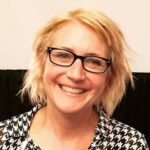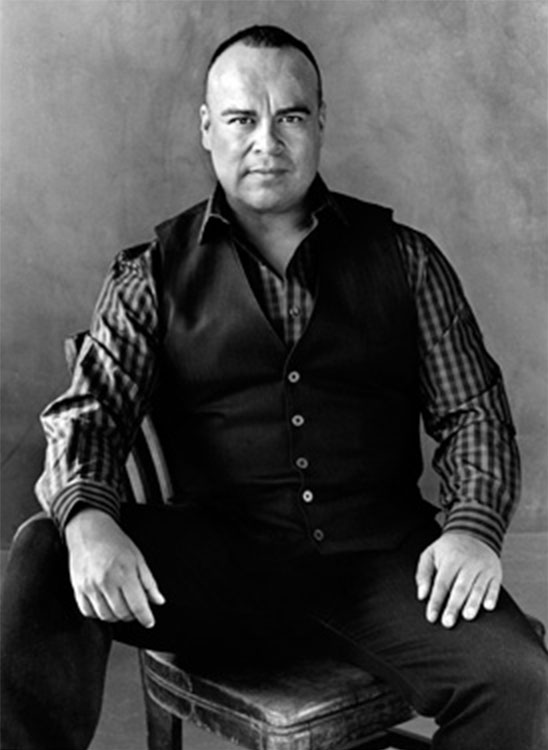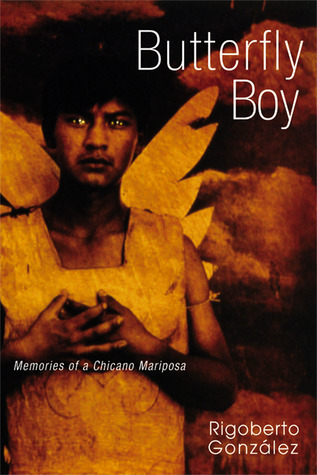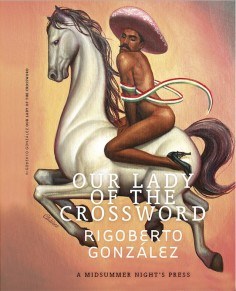Summer 2017
3
“The Ugly Fringe of the Beautiful”:
A Profile of Rigoberto González
Sydney Elliott, Managing Editor
Class of 2015
“The Ugly Fringe of the Beautiful”:
A Profile of Rigoberto González

Sydney Elliott
Managing Editor
Class of 2015
As I write this, poet and writer Rigoberto González is in Italy to “stand still.” As critic-at-large with the Los Angeles Times, with a collection of critical essays and book reviews coming out in September as well as a new collection of poems to be published in 2019, González wants to reflect on his accomplishments and on what still needs to be done after a long, fourteen-city reading and lecture tour. When he returns, he will be joining the RWW community as a new faculty member and our inaugural Stan Rubin Distinguished Writer-in-Residence.
González is the author of four books of poetry, three young adult novels, a novel, a story collection, and three books of nonfiction. His book of poetry Unpeopled Eden won the Lambda Literary Award and the Lenore Marshall Poetry Prize from the Academy of American Poets. Butterfly Boy: Memories of a Chicano Mariposa received an American Book Award from the Before Columbus Foundation.

Roberto González. Photo by Marion-Ettlinger.
His accomplishments and awards are many. They include receiving Guggenheim, NEA, and USA Rolon Fellowships and an NYA grant. He won the Shelley Memorial Award from the Poetry Society of America, and in 2015 he won the Bill Whitehead Award for Lifetime Achievement from the Publishing Triangle. In addition to being critic-at-large with the LA Times, González is a contributing editor for Poets & Writers Magazine, writes a column for NBC Latino online, and sits on the Board of Trustees of the Association of Writers and Writing Programs (AWP).
![]()
Before he left for Italy, I asked Rigoberto a few questions. I had been reading his memoir Butterfly Boy and his poetry collection Our Lady of the Crossword, and I was curious about his current projects.

Butterfly Boy
González: I have a book of critical essays and book reviews coming out in September through the University of Michigan's Poets on Poetry series, as well as a book of personal essays coming out next spring. I am currently doing edits and rewrites for both of those. But my energy this summer will mostly be focused on my next book of poetry, which I have to submit to my editors at Four Way Books by the end of the summer. That collection will be out in 2019. It's a book of poems about the damage we have done to our land, ourselves, and our psyches by burying the truths of our destructive nature, by refusing to confront our traumas. I am particularly interested in how our history books and our memories are complicit in this harmful act of erasure.
Elliott: How do you feel about joining RWW?

Our Lady of the Crossword
González: I'm excited about joining RWW. I absolutely love the Pacific Northwest, its landscape and energy—and I have a deep respect for many of the RWW faculty. The program's unique mentoring design intrigues me, and I'm looking forward to making new friends and joining a community of thinkers, readers, and writers that will sustain me, particularly during these rather troubling times in which those who dare resist or challenge are seen as threats. Writers have always been important that way, because we resist and challenge, so we need to come together often to remind ourselves we are not alone in our creative impulses and that we are certainly not threats, but assets in our society.
Elliott: And Italy?
González: Italy is all about three things: moving forward with the book of poems (I am in residency in Bellagio on Lake Como for a month); trying to stay healthy (I am not too crazy about Italian food, but it's going to be hard to resist all that cheese and prosciutto); and getting some rest.
After reading even a small amount of Rigoberto’s work, I am eager to talk to him in person. González’s work explores the fringes, borders, and edges of socially and culturally prescribed notions of what it means to be human. He unravels complex questions, and he contests our tendencies to assign labels and establish borders within the human experience and the natural world. He does this in a manner that is forthright, deliberate, and honest.
He is a watchman, an explorer, a lover, a gay man, a Chicano. He is a poet. He is the voice of those whose lives are defined by borders. He is a voice for us all.
And so I simply sit and wait, the self-designated
watchman on the ugly fringe of the beautiful sea,
imagining heaven as it is for you, as it will be for me.
______— “Alfonso: A Love Story,” Our Lady of the Crossword
RWW welcomes Rigoberto González.
As I write this, poet and writer Rigoberto González is in Italy to “stand still.” As critic-at-large with the Los Angeles Times, with a collection of critical essays and book reviews coming out in September as well as a new collection of poems to be published in 2019, González wants to reflect on his accomplishments and on what still needs to be done after a long, fourteen-city reading and lecture tour. When he returns, he will be joining the RWW community as a new faculty member and our inaugural Stan Rubin Distinguished Writer-in-Residence.
González is the author of four books of poetry, three young adult novels, a novel, a story collection, and three books of nonfiction. His book of poetry Unpeopled Eden won the Lambda Literary Award and the Lenore Marshall Poetry Prize from the Academy of American Poets. Butterfly Boy: Memories of a Chicano Mariposa received an American Book Award from the Before Columbus Foundation.

His accomplishments and awards are many. They include receiving Guggenheim, NEA, and USA Rolon Fellowships and an NYA grant. He won the Shelley Memorial Award from the Poetry Society of America, and in 2015 he won the Bill Whitehead Award for Lifetime Achievement from the Publishing Triangle. In addition to being critic-at-large with the LA Times, González is a contributing editor for Poets & Writers Magazine, writes a column for NBC Latino online, and sits on the Board of Trustees of the Association of Writers and Writing Programs (AWP).
![]()
Before he left for Italy, I asked Rigoberto a few questions. I had been reading his memoir Butterfly Boy and his poetry collection Our Lady of the Crossword, and I was curious about his current projects.
González: I have a book of critical essays and book reviews coming out in September through the University of Michigan's Poets on Poetry series, as well as a book of personal essays coming out next spring. I am currently doing edits and rewrites for both of those. But my energy this summer will mostly be focused on my next book of poetry, which I have to submit to my editors at Four Way Books by the end of the summer. That collection will be out in 2019. It's a book of poems about the damage we have done to our land, ourselves, and our psyches by burying the truths of our destructive nature, by refusing to confront our traumas. I am particularly interested in how our history books and our memories are complicit in this harmful act of erasure.
Elliott: How do you feel about joining RWW?
González: I'm excited about joining RWW. I absolutely love the Pacific Northwest, its landscape and energy—and I have a deep respect for many of the RWW faculty. The program's unique mentoring design intrigues me, and I'm looking forward to making new friends and joining a community of thinkers, readers, and writers that will sustain me, particularly during these rather troubling times in which those who dare resist or challenge are seen as threats. Writers have always been important that way, because we resist and challenge, so we need to come together often to remind ourselves we are not alone in our creative impulses and that we are certainly not threats, but assets in our society.


Elliott: And Italy?
González: Italy is all about three things: moving forward with the book of poems (I am in residency in Bellagio on Lake Como for a month); trying to stay healthy (I am not too crazy about Italian food, but it's going to be hard to resist all that cheese and prosciutto); and getting some rest.
After reading even a small amount of Rigoberto’s work, I am eager to talk to him in person. González’s work explores the fringes, borders, and edges of socially and culturally prescribed notions of what it means to be human. He unravels complex questions, and he contests our tendencies to assign labels and establish borders within the human experience and the natural world. He does this in a manner that is forthright, deliberate, and honest.
He is a watchman, an explorer, a lover, a gay man, a Chicano. He is a poet. He is the voice of those whose lives are defined by borders. He is a voice for us all.
And so I simply sit and wait, the self-designated
watchman on the ugly fringe of the beautiful sea,
imagining heaven as it is for you, as it will be for me.
______— “Alfonso: A Love Story,” Our Lady of the Crossword
RWW welcomes Rigoberto González.
